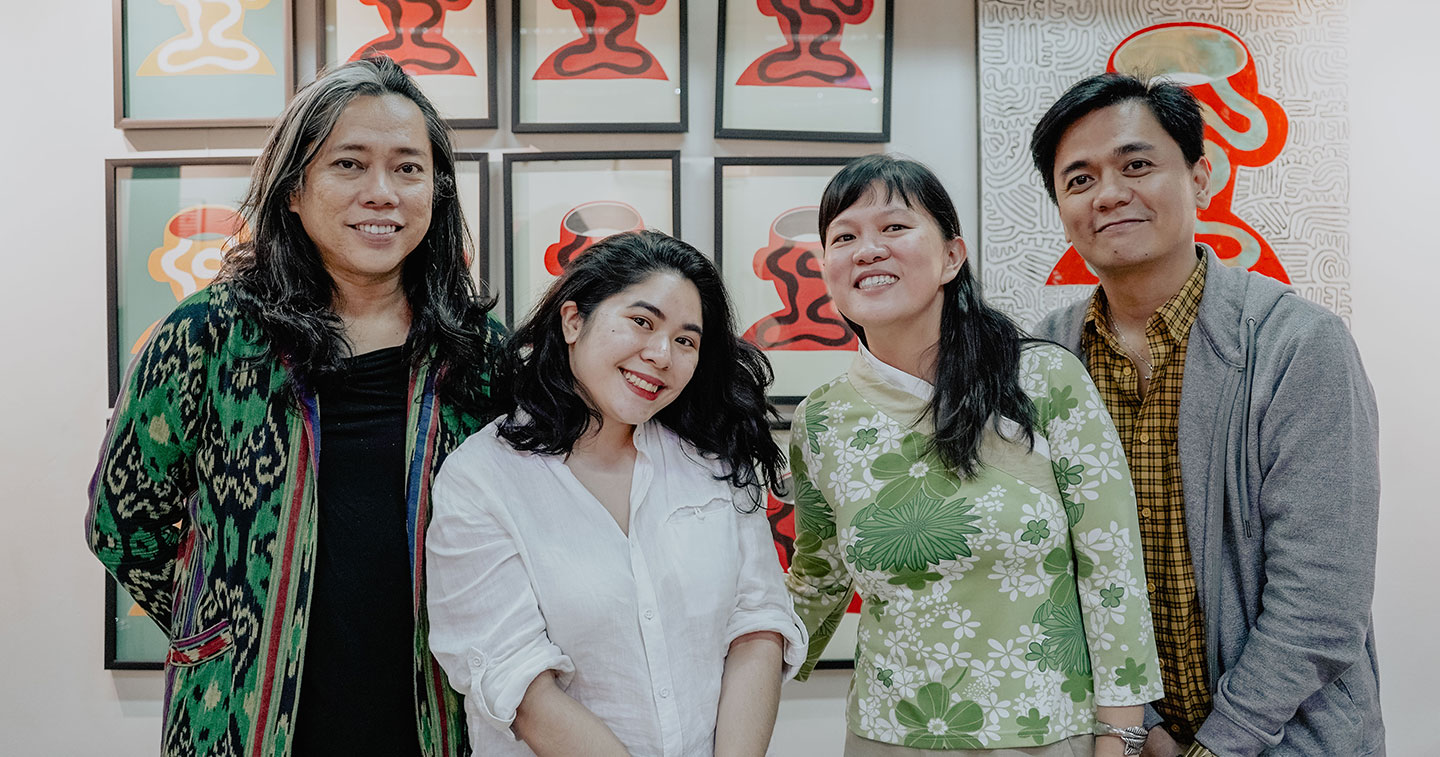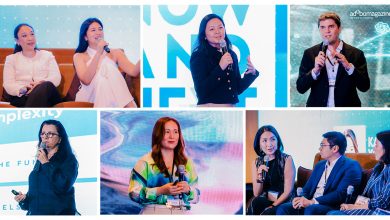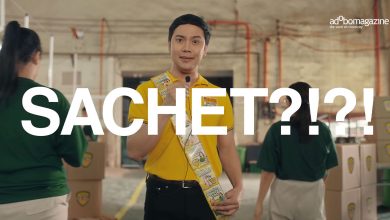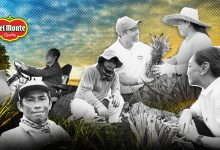Mentored and facilitated by two industry powerhouse names, Moira Lang and Monster Jimenez, in a span of three days, all the participants went home with valuable insights and first-hand industry lessons to kickstart a career in film. But two lucky attendees emerged from the workshop with a bit more. Get to know Belle Mapa, a storyteller and writer for Edukasyon.ph, and Kylle Columna, a Computer Science undergrad at UP Manila.
Belle Mapa, content writer at Edukasyon.ph, mental health advocate and creative journaling workshop facilitator – Best Pitch Winner – Peers’ Choice
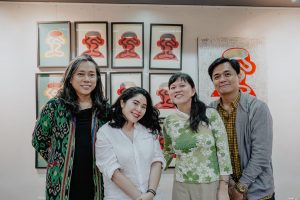
Can you tell us more about yourself.
I’m a content writer and creator by profession. I currently write articles, blogs, video scripts for Edukasyon PH. But I also freelance for publications, other blogs and websites. I took up BFA Creative Writing in Ateneo. I was originally going to choose the drama or playwriting track but I ended up specializing in creative nonfiction. So, storytelling has always been there in my career.
But the work that I’ve been focusing on recently is my work as a mental health advocate. I’m a creative journaling workshop facilitator. I teach people how to journal, how to write, or how to just be creative with a notebook in order to heal, to be more productive and organized. How creativity is a tool for self discovery and recovery.
What prompted you to sign up for the Swipe Write workshop?
I first saw the invite on Facebook, then our CEO at Edukasyon also offered to sponsor someone from the creative team to attend the workshop. Because we’re an education technology company, we’re encouraged to pursue learning opportunities outside of work. So, because you know film writing has been that shadow area for me, I was eager to learn about it.
I was kind of nervous, but yeah. I’m very grateful that it really opened a lot of insights and also doors for me because I was able to talk to a lot of people and interact as well with fellow creatives, not just leading figures in the film industry. Feel the space.
Is filmmaking or writing for film something you’ve always wanted to do?
In BFA Creative Writing kasi, you’re trained in four genres: fiction, nonfiction, poetry, and drama or playwriting. Nut film writing is an elective so yeah I wasn’t able to take it. It’s interesting, so I’ve wanted to learn it for a while. As a writer, you’re always challenged to grow your craft and there.
And with scripts for film, are so different from scripts with plays. In drama or in playwriting, you’re writing for the stage you’re writing for the spectacle. Whereas for film you consider the screen the interior / exterior shots, proximity to characters. You’re treating settings and even the camera like characters of their own. There’s so much nuance that you have to pay attention to in both mediums so that’s something I wanted to explore when I entered the workshop.
And then there’s also, you know, marketing yourself as a writer for both forms. It’s totally different. We take that into consideration as well.
What were you expecting to learn from or get out of this three-day workshop?
Yeah, I was expecting a lot of technicalities, things that would like fly over my head, because I’m—I wouldn’t call myself a film buff. So I was super expected to get schooled. I know next to nothing about film writing. I’ve never felt that intimidated before entering an event. But then when I got there, our peers were nice, Moira and Monster were nice. So, the intimidation sort of dissolved into this excitement to learn.
What happened during the three days at the workshop?
Monster and Moira gave talks and then it was all about the different careers in the industry: being a producer, writer, stuff like that. How to fund and how to figure out like the nitty gritty when it came to your film. Then the other talk was about the actual writing, the creative part of the work.
It was really interesting because you had sort of like the left and the right brains of filmmaking on the first day. And then it ended with like an assignment to bring a rough story line for the second day. We were also able to watch the film Patay Na Si Hesus, which was really cool because we unpacked that right after. It was really interesting, hearing it straight from the source: how they collaborated with the actors and director, breaking down shots, talking about life on set. The second day I wasn’t able to attend because a work thing came up and I super regretted that because they watched Apocalypse Child that day. That was also the day that they presented their storyline, and then gave feedback. As a writer, workshopping your creative work is crucial. Sad! The third day was pitch day. It was the day that I was terrified as hell.
Can you tell me a bit more about your pitch?
I wanted to marry the voyeurism and almost comical exaggeration of what we see on Reality TV with how Filipino traditions and customs have integrated with our precolonial practices (e.g. spiritual and folk beliefs such as dwende, gayuma, kulam, even the way we pray to saints is reflective of our precolonial animistic culture). Sort of playing with that love Pinoys have for onscreen drama. Everything’s so exaggerated with all our teleserye tropes, so I wanted to take a step back and make it comical, so why not through a mockumentary on the secret lives of a rich family that hides its mangkukulam lineage.
Pinoys like these crazy rich Asian chismis. I wanted to insert a bit of my experience (things I hear as a fly on the wall and having worked in the luxury editorial industry for a bit) into the film to also ground it on reality.
What were the most valuable highlights from this experience?
Valuable highlights I think was getting advice and hearing first hand experience from industry professionals. It wasn’t just like, “Okay, you do this, you do that.” So my takeaway from the workshop is that I can write film, I can write about film. It was pretty eye opening. I think I’m going to pursue this medium sometime in the future. I think the biggest takeaway was that you really have to think visually. It’s really all about, sort of, unpacking a big idea.
Something I think they mentioned, moving forward, was when you’re writing a story… It can mean a lot to you, but then at the end of the day, you’re going to end up pitching it to other people and that’s how your film gets made. So it’s really about why should people care about it? And that sort of made me grow a bit more as a writer. The whole, who cares about your story? That’s so important because sometimes we end up writing a lot for ourselves, but then we also need to take into consideration: Why should people care about what we put into the world?
What’s up next for you? Any projects or plans in the pipeline?
Yeah, I think I mentioned this earlier just got out of the two day symposium on expressive arts therapy. And, you know, this past [film] workshop, definitely opened my eyes to like new projects that I can pursue. So I’m taking on the challenge of pursuing new mediums for storytelling and working closely with other people to help them recover and unwind.
Writing projects-wise, I’m going to be spending next year refining a few more plots. Like over the past few months after that film workshop, I’ve listed down like three or four fiction plots that were really interesting so I really want to find time to flesh those out into either novels, short stories, or short films (if someone’s game).
The whole mangkukulam thing really came to me because it’s so close to my practice. I’m into “woo-woo” stuff; my lola believed in engkanto, and Philippine mythology is so under-explored, but I grew up believing in aswang. I really wanted to explore this insight I heard from someone in the TV industry: The further a reality TV show is from our actual experience, the more entertaining it is.
I’m excited to get creative again, really. It’s exciting and terrifying. That’s the kind of creative energy you want, though. The one that you know makes you scared but still encouraged to leap, and I really haven’t felt this way in a long time.
There’s a lot of creative energy coming in for me next year. I’m already scheduled for a bunch of creative workshops for me to teach people about how journaling/writing opens up new doors for you to find your inner self, inner spirit. Going to see how script writing, or like playwriting can work if I can use this in my practice as well. Originally, I went into the workshop to learn how to write better mostly for video work for my clients. Then I realized, this [medium] might also work for expressive arts education.
Did you expect to be one of the winners at this workshop? What were the prizes and what did you hope to get out of your hub membership?
Definitely not. I came in there with little knowledge, then ended up winning best pitch [peers’ choice] and I was like, “Wait, what?” I really don’t want to sound like self-patronizing here, but I felt extremely inexperienced compared to everyone else. Their pitches were like through the roof. Everyone’s ideas were extremely brilliant. There were a lot of really good pitches. The other one who won was about finding home, and I thought that was beautiful.
[The experience] was terrifying, but I was really so grateful. I think, shookt is the word. Because it’s extremely validating and also eye-opening, as a creative, when your work gets recognized—especially when you think you suck.
As for prizes, I’m just waiting for a time that I’m free to binge on iFlix. And I will deep dive into [the free adobo Creative Hub membership] next year. Thank you to adobo for the super insightful workshop. And to Moira and Monster for really taking the time to not just be mentors, but friends during those three days.

